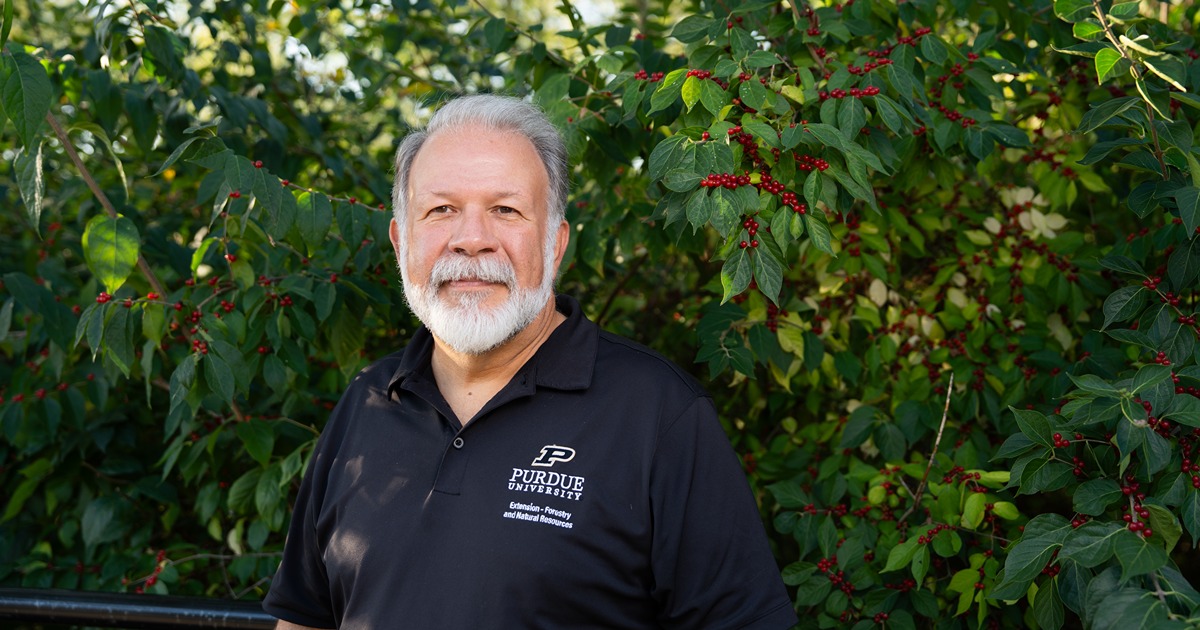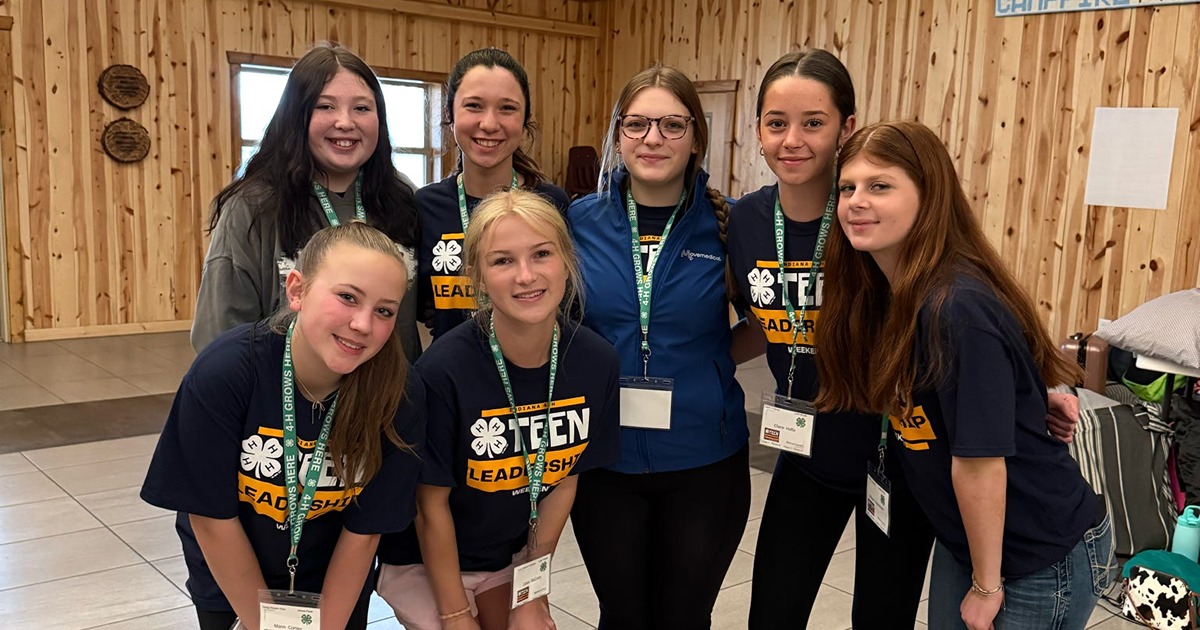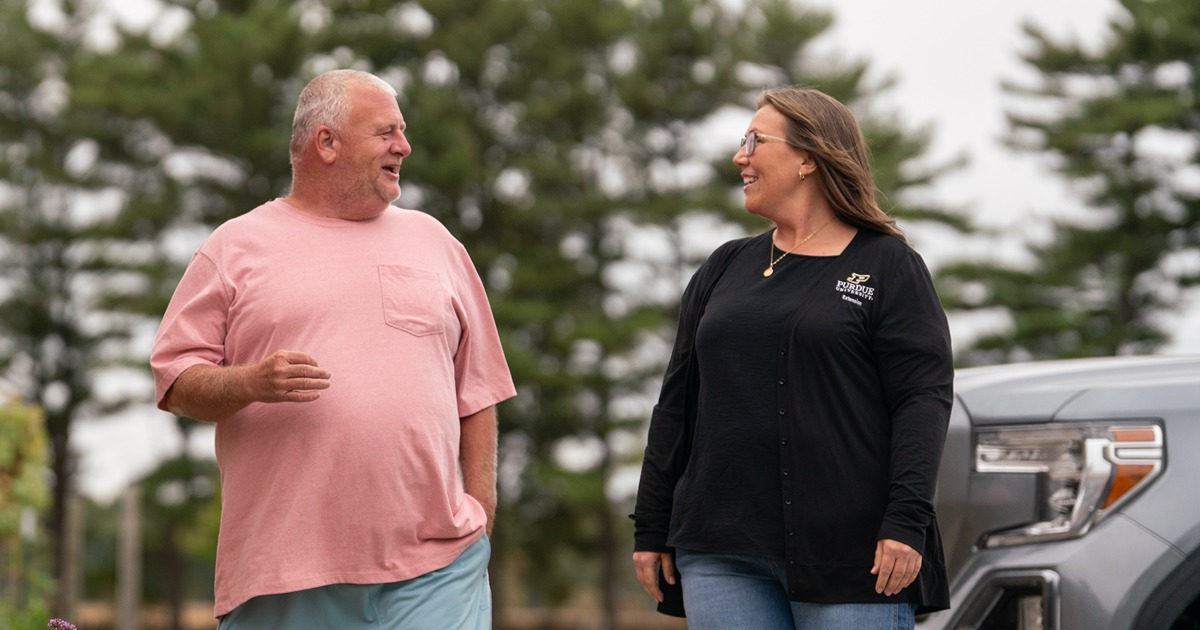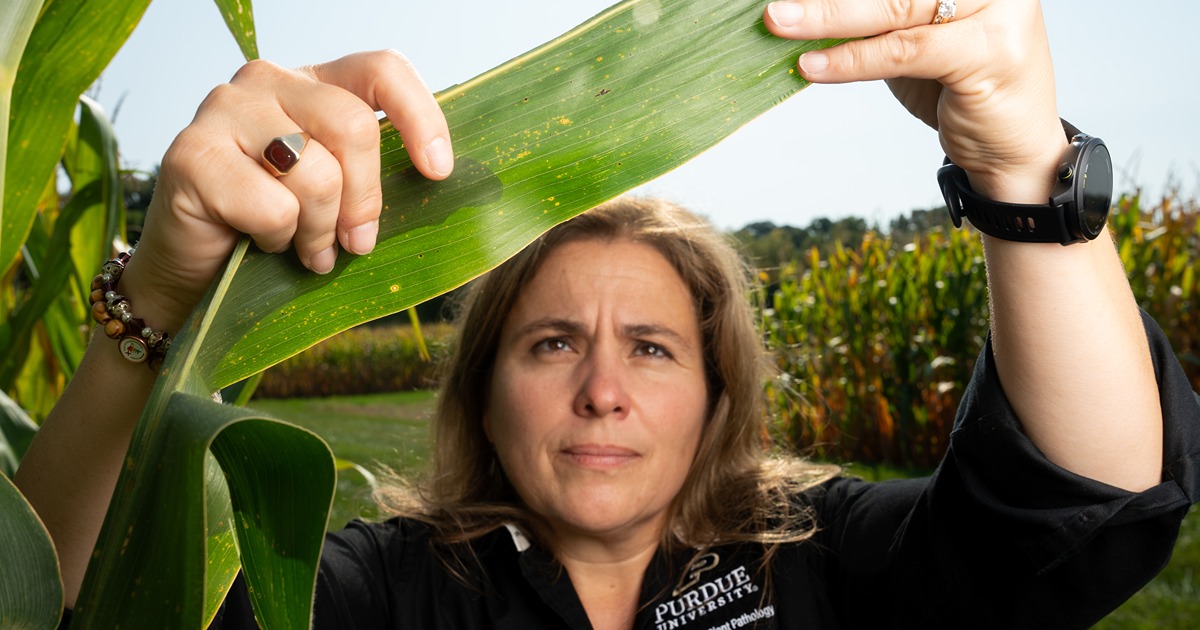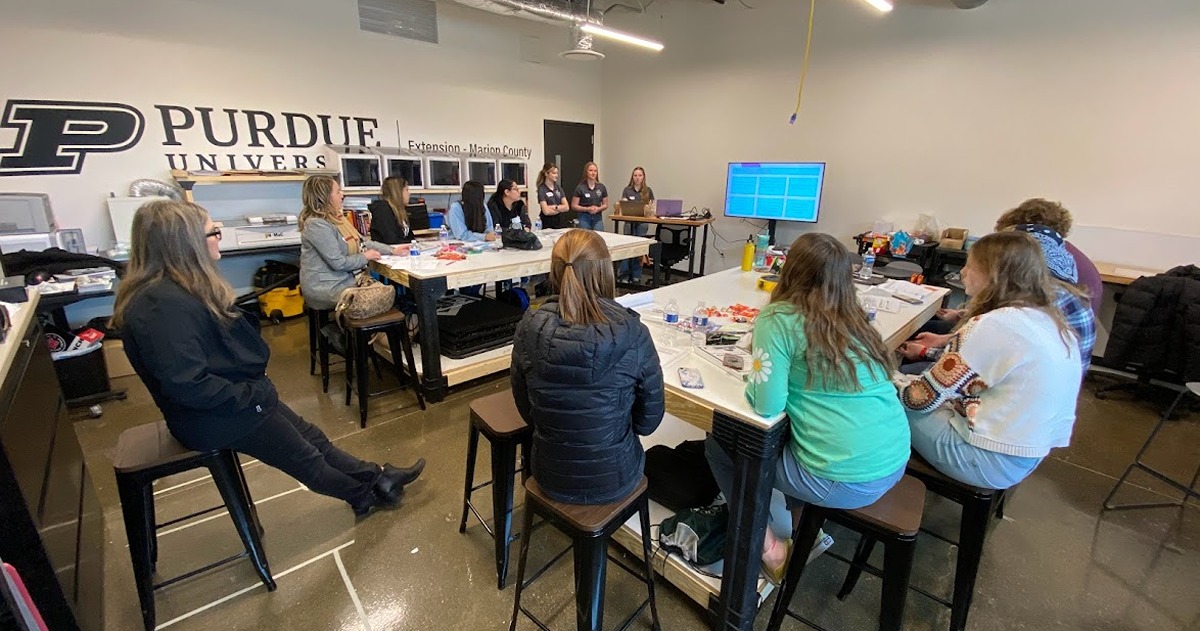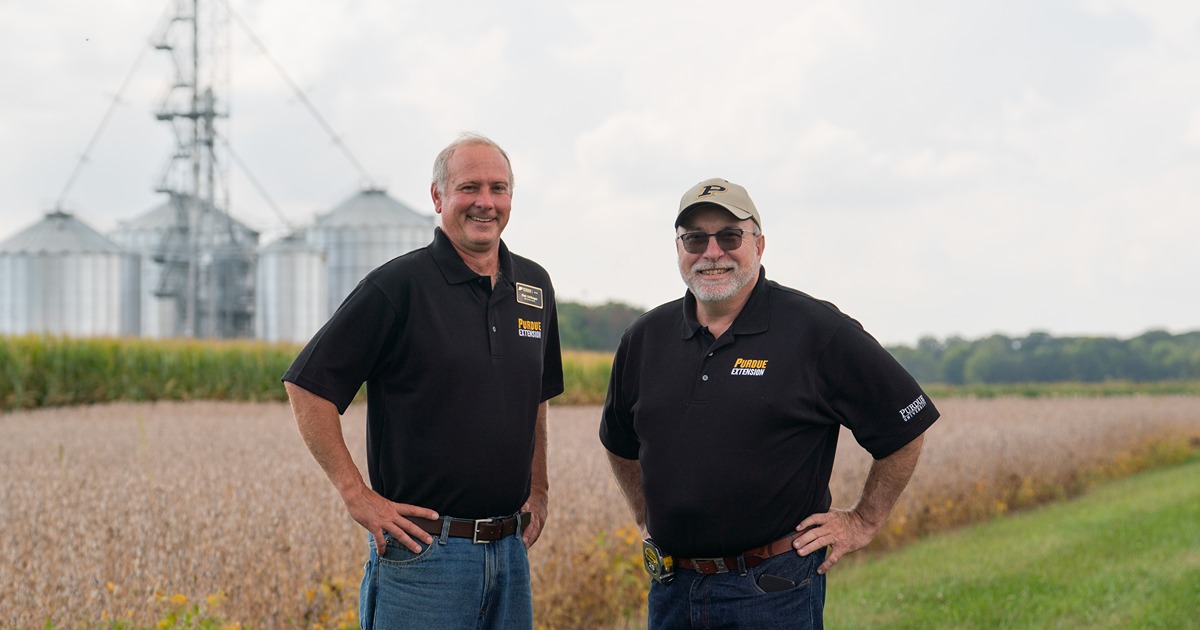Training International Farmers in Food Preservation and Processing
Purdue Extension, in collaboration with the University of West Indies at St. Augustine, is implementing the USAID John Ogonowski and Doug Bereuter Farmer-to- Farmer (F2F) program in Trinidad and Tobago.
For the past three years the United States Agency for International Development-funded program has provided technical assistance from U.S. volunteers to farmers, farm groups, agribusinesses and other agriculture sector institutions to address food and nutrition security and strengthen the extension system in Trinidad and Tobago. More than 750 people have been trained across a number of themes.
“The program’s achievements in Trinidad and Tobago are truly impressive,” said Associate Dean and Director of Purdue’s International Programs in Agriculture (IPIA) Gerald Shively.
“It’s impressive not only in terms of the valuable training and technical assistance provided, but also with respect to providing enhanced cultural awareness and understanding through volunteer exchanges, a goal that is at the heart of the Farmer-to-Farmer program.”
Traditionally, the F2F volunteers have had Purdue Extension educators focused in agriculture, but in March 2023, Health and Human Sciences Extension educators Abigail Creigh (Noble County) and Molly Hoag (Wells County) traveled to Trinidad to train farmers in food preservation and processing. The Tri-Valley Cluster is a group of farmers, agro-processors, agricultural value-added agents, agro-tourism agents and rural community development activists from the northeastern regions of Trinidad — Lopinot, Brasso Seco and Aripo. Many of the cocoa farmers of the Tri-Valley Cluster are unprofitable during non-cocoa-bearing seasons.
On recently established estates, the long gestation time of cocoa (three years before bearing) creates a financial burden and cashless period for farmers. As a result, the Tri-Valley farmers wanted to diversify their agribusiness in terms of agro-processing by making baking flour from root crops and tubers such as cassava, dasheen and sweet potato grown on their farms.
Creigh and Hoag have extensive knowledge in food agro-processing with a focus on food processing and storage techniques in food safety. Through their volunteer technical assistance, the farmers of Tri-Valley learned new techniques of making baking flour to diversify their cocoa farms and increase their productivity, marketability, profitability and sustainability in the global cocoa industry. This has enabled the farmers to provide new products for allergy sensitivities and usage of local products rather than costly wheat imports. The knowledge that Creigh and Hoag have passed on will be essential in helping the Tri-Valley members continue to improve their agribusinesses as well as ensure adherence to international standards in agro-processing techniques.
Bringing back knowledge to Indiana
My experience in Trinidad definitely pushed me out of my comfort zone. Working with the Tri-Valley Cluster gave me a realization that many people do not have access to resources for basic concepts with food preservation and food safety. The global experience has helped to expand my understanding of other cultures and oppose any predetermined perceptions that many people learn within their bubbles.
- Molly Hoag, Well County Health and Human Sciences Educator
Creigh and Hoag plan to establish a program in Indiana to create allergy-sensitive products such as gluten-free options. They also hope to offer more programming in the art of dehydration and fermentation, and products from start to finish.
“We have to adapt to the resources we have available here in the U.S.,” Hoag said. “We don’t have cassava or cocoa regularly accessible, so we are brainstorming ways to educate about creating allergy-sensitive options with the resources readily available in Indiana.”
“It was an invaluable experience to travel to Trinidad and teach food preservation and food safety,” Creigh said. “The members of the Tri-Valley Cluster demonstrated so much excitement and willingness to learn. I have gained knowledge of how other cultures work, live and play and realized my passion as an educator can have a positive impact on others across the world.”
“The Farmer-to-Farmer experience can make you a stronger educator,” Hoag said. “Because you’re forced out of your own cultural comfort zone, it helps broaden your way of thinking and allows you to account for different perceptions and understand other backgrounds.”
THREE-YEAR PROGRAM IMPACT
- 40 POSTDOCS, EXTENSION FACULTY AND EDUCATORS completed an assignment
- 1,112 PEOPLE trained
- 62% OF ASSIGNMENTS focused on food and nutrition security
- 29% OF ASSIGNMENTS strengthened extension service
- Host groups made 41 NEW AND IMPROVED SERVICES AND PRODUCTS. Examples of products and services include online courses, gluten-free foods, tomato jam, pepper sauce and chocolate stout.

